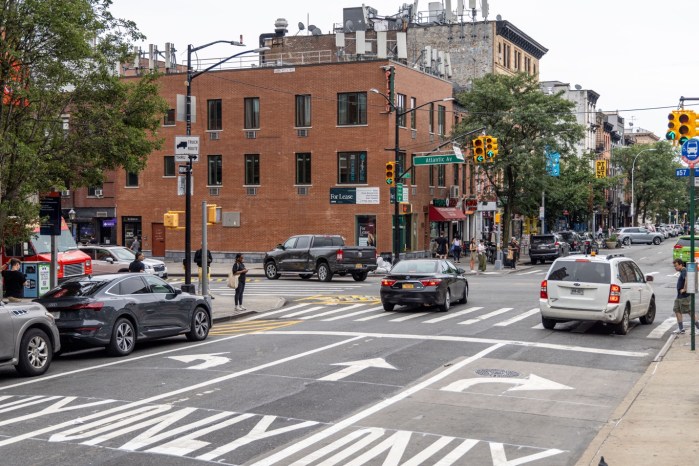Canarsiens count, and they need to be counted when the next Census is taken, later this year.
The neighborhood has lost millions of dollars in funding that could be used for a wide range of services, from schools to roadways to hospitals, because of significant undercounting during the last Census, in 2000, said Pradine Content, a partnership specialist with the United States Census in Canarsie.
Only about 58 percent of the borough’s residents were counted, 10 years ago, she told members of the 69th Precinct Community Council, gathered at the Hebrew Educational Society, 9502 Seaview Avenue, for their January meeting. In particular, Content said, undercounting was a problem in neighborhoods such as Canarsie, Flatbush, Bedford Stuyvesant, East New York and Crown Heights.
“That goes to show how much services we lost in Brooklyn,” Content emphasized.
“In order to get more police protection in the community, we need more people counted,” Content said. “The resources in the community are all related to the count in the community. If you’re looking for after-school programs, community based organizations, money for sanitation, money for transportation, representation in government – everything is done with the count.”
One of the roadblocks that faced Census takers in the neighborhood, the last time round, is the fact that many immigrants live in the community, and some of them are undocumented, Content noted.
“Citizens and undocumented immigrants alike use the services,” she added. “If we’re looking for more schools coming back into Canarsie, everyone needs to be counted. Whether you are a felon, whether you don’t exist on paper by anyone, we need everyone to be counted.”
However, she stressed, “Whatever your status is, it’s important that you are counted,” during the 2010 Census. There is no danger of the Census Bureau sharing information with other government agencies, such as Immigration and Naturalization Services, she added.
Not only is such sharing prohibited by law, but anyone guilty of it could be fined or sent to jail, Content said. Not even President Obama could ask the Census Bureau for specific information about a particular person, she noted.
“Anything that is put on the form is highly confidential,” Content stressed.
Another issue that has limited the number of people living in the neighborhood who respond to the Census is the fact that many are living in sublets and converted basement apartments.
Census forms will be mailed out in March, in anticipation of Census Day, April 1st, Content said. Anyone who does not return the form will receive a second form in the mail. If that form is not returned, the individual to whom it was addressed can expect a knock at the door when enumerators begin canvassing the neighborhood later in the spring, Content said.
There are only 10 questions asked, she added. “It doesn’t ask whether you are a citizen. It doesn’t ask for your Social Security number,” Content stressed.
Besides reaching out to encourage area residents to be counted, the Census Bureau is also looking for faith-based organizations and community based organizations that are willing to allow their space to be used as question assistance centers, for people who need help filling out the form, and to-be-counted sites, where forms and other Census materials can be made available.
For further information on the Census, log onto 2010.census.gov/2010census or call the regional Census office, at 212-971-8810.






















